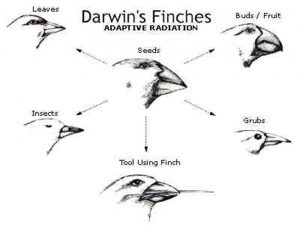Complexity in Businesses
It is necessary to define complexity in the field of business. It needs to be understood to develop and use adaptive systems:
 When you have to add 1 + 1 the problem is simple; 1 + 1 = 2. There is only one possible solution and all you have to do is follow a method.
When you have to add 1 + 1 the problem is simple; 1 + 1 = 2. There is only one possible solution and all you have to do is follow a method.
But the problem becomes complex if you reverse the equation (2 = ???) because you need to produce a result. In this case there are infinite solutions and the problem is complex because you have to find the equation that optimizes the process of producing results. That is why using methods is simple but ensuring results is complex.
We define a complex system as an open system, which defines the functionality of a unified field through the conjunction of objects and/or subsystems.
Dealing with Businesses as Complex Adaptive Systems
Businesses are typical adaptive systems. Businesses need to adapt to the environment in order to achieve their goals.
The Unicist Logical Approach allows emulating the dynamics of a business in mind that allows managing it as an adaptive system. Thus this approach permits defining reliable scenarios, develop diagnoses, build strategies and design business architectures.
The more adaptive a system is, the less energy it consumes to generate a predefined value. Adaptive systems require using predictors to deal with the adaptive aspects of the reality that is being managed. This requires using a unicist logical approach to define the rules that regulate adaptiveness and allow designing the architecture of the system.
Designing adaptive systems implies dealing with the complexity of such systems and developing operational solutions that can be managed by everyone to expand businesses and save energy. Complexity science can be defined as the scientific approach to complex adaptive systems.
The Unicist Logical Approach to Complexity Sciences
Learn about the Unicist Logical Approach at: http://www.unicist.net/clipboard
The unicist logical approach manages the adaptive aspects of business as unified fields based on the knowledge of their ontogenetic maps.
The knowledge of the ontogenetic map of a business, its market and the context allowed managing the fundamentals that define the possibilities of business actions.
The future scenario building became possible based on the knowledge of the ontology of evolution and the ontogenetic maps of a business and its restricted and wide contexts.
This knowledge allowed defining synergic maximal strategies, to expand beyond the boundaries of a business, and minimum strategies to work within them.
Adaptive business processes became reliable based on the use of ontology based business objects. The use of objects upgraded the role of human work in business.
The integration of fundamental analysis and technical analysis allowed building reliable business knowledge, transforming uncertainty into risk and integrating the knowledge of the possibilities of success with its probabilities.
All the solutions, business objects, technologies and knowledge provided by The Unicist Research Institute are based on the unicist logical approach and generate significant energy saving effects.
Steps to Manage Businesses as Adaptive Systems:
- Forecast the future of the adaptive system that is being influenced.
- Diagnose adaptive systems to define the possibilities of what can be achieved and how to do it.
- Develop the necessary strategies that allow developing both maximal strategies to expand the boundaries of the system and minimum strategies to ensure survival.
- Design the architecture of the solution in order to obtain the results that are necessary and possible to be achieved.
This requires having a conceptual approach to apprehend the unified field of the business and being able to transform adaptive aspects into operational solutions.
The Unicist Healthcare Confederation is now expanding worldwide providing unicist object driven technologies to deal with the adaptive aspects of businesses. www.health.unicist.net
Peter Belohlavek
NOTE: The Unicist Research Institute was the pioneer in complexity science research and became a private global decentralized leading research organization in the field of human adaptive systems.
https://www.unicist.org/healthcare/wp-content/uploads/2013/11/turi.pdf
 This research began in 1976 with the hypothesis that in nature there are mutations that are random but others that are driven by a purpose.
This research began in 1976 with the hypothesis that in nature there are mutations that are random but others that are driven by a purpose. He concluded that each living creature’s evolution is ruled by its ontogenetic intelligence, that defines it as unique both in its species and individuality and that the essential structure of this intelligence is integrated by a purpose, an active principle (entropic function) and an energy conservation principle.
He concluded that each living creature’s evolution is ruled by its ontogenetic intelligence, that defines it as unique both in its species and individuality and that the essential structure of this intelligence is integrated by a purpose, an active principle (entropic function) and an energy conservation principle.
